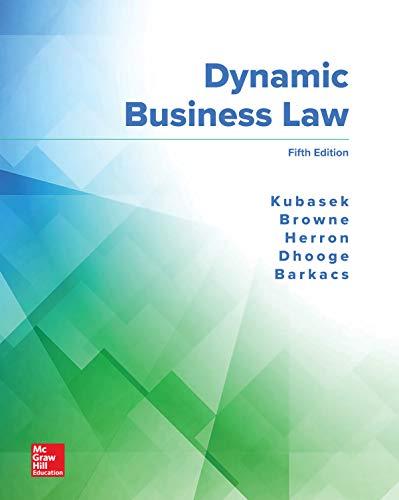The dispute in this case is between the Union Baptist Development Corporation (the Corporation) and the Union
Question:
The dispute in this case is between the Union Baptist Development Corporation (the Corporation) and the Union Baptist Church of Baltimore, Inc. (the Church) over a piece of property in the City of Baltimore. In 1978, the Church began a project to revitalize its immediate neighborhood by purchasing dilapidated property and and constructing a coffee house to serve the elderly. The Church formed the Corporation to be able to receive funding from the City of Baltimore and the Corporation purchased and maintained the property. The Church did not hold the deed for the coffee house property, but it was understood that the Corporation was essentially an extension of the Church. In the 1980s and 1990s, owners of the surrounding properties, with several lots adjoining the coffee house property, donated their properties to the Church. It was on this surrounding land that the Church raised $1 million, matched equally by state funding, and constructed a Head Start Program Center. While most of the Head Start building was built on the surrounding property, a portion of it was on land held by the Corporation. Following the turn of the century, the new reverend of the Church and its board of trustees held a vote to elect a new board for the Corporation. The reverend, acting as the president of the Corporation, subsequently executed a quitclaim deed, transferring the coffee house property to the Church. In July 2013, the Corporation then sued, alleging that the reverend and the the newly elected board were not actually on the board of the Corporation and thus had no authority over the Corporation. By this point it was clear that the Corporation no longer thought of itself as an extension of the Church. After a three-day trial, the judge issued an order from the bench in which the reverend’s quitclaim deed was rendered null. However, the judge still transferred the property to the Church under Section 5-209 of the Articles of the Maryland Code, reasoning that the property should go to the church because the Head Start building, which partially rested on the property, was built entirely from the Church’s efforts. Furthermore, a subsequently written declaratory judgment ordered the dissolution of the Corporation because the Corporation had lost its reason for existence after having its sole property transferred to the Church. The board of the Corporation appealed. Do you think the trial court abused its discretion by dissolving the Corporation? How did the appellate court rule?
Step by Step Answer:

Dynamic Business Law
ISBN: 9781260247893
5th Edition
Authors: Nancy Kubasek, M. Neil Browne, Daniel Herron, Lucien Dhooge, Linda Barkacs





